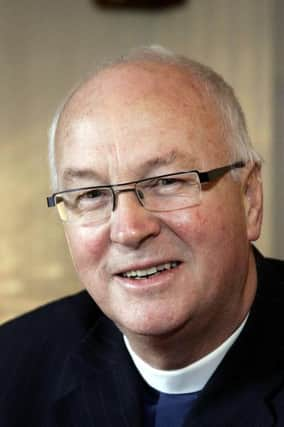THOUGHT FOR THE WEEK: The Turkish Bath test


I’ve never been in a Turkish bath, but I assume that less clothing is worn than is customary in a leisure centre sauna! I don’t imagine the great Anglican theologian and missionary statesman Bishop Stephen Neill was familiar with a Turkish bath either, but in one of his published lectures, he mentions a colleague who certainly was.
He confided: “Some time ago one of my brother bishops in England went to have a Turkish bath. While he was wearing about as much as one does wear in a Turkish bath, the attendant, who was doing to him whatever attendants do in a Turkish bath, said, ‘Excuse me, sir, but I think you are a clergyman.’
Advertisement
Hide AdAdvertisement
Hide Ad“The bishop was a little surprised, not knowing what there was that was particularly recognizable about him at that moment; the attendant explained; ‘Ah, sir, it’s always the knees that give you away.’”
Just as the manual worker is revealed by the calluses on his hands, so the man who regularly bows in prayer will be known by his knees!
In the early church, James the brother of Jesus was noted for his diligent prayer-life. it was said that he interceded so frequently for God’s people, that his knees grew hard like a camel’s.
In his New Testament epistle, James wrote of a Elijah, a man noted for his effective prayer-life. He wrote, ‘The prayer of a righteous man is powerful and effective.’(James 5;16).
Advertisement
Hide AdAdvertisement
Hide AdMany can testify to the power of prayer, not as a means of selfishly getting what we want, but as a vehicle through which God works his purposes. The great evangelist D.L. Moody was once asked the secret of his successful preaching tours on both sides of the Atlantic.
He put it all down to the prayers of one bed-ridden lady in America’s mid-west. Likewise David Hill, a distinguished missionary in China, was heard to say, ‘I am feeling especially buoyant this morning, someone must be praying for me at home.
Two sentences, variously attributed, present the challenge of prayer. One runs: ‘If you want to make a man humble ask him about his prayers’; and the second states, ‘What a man is on his knees before God, that he is and nothing more.’
When the leadership of Samuel was being by-passed in the nation’s lust for a king, Samuel withdrew graciously from the scene, but pledged his support for the new arrangements, saying, ‘Far be it from me that I should sin against the Lord by failing to pray for you.’(1 Samuel 12; 23).
Yet that is the way in which most Christians fail. Let’s ask ourselves whether we would pass the ‘Turkish bath test’.